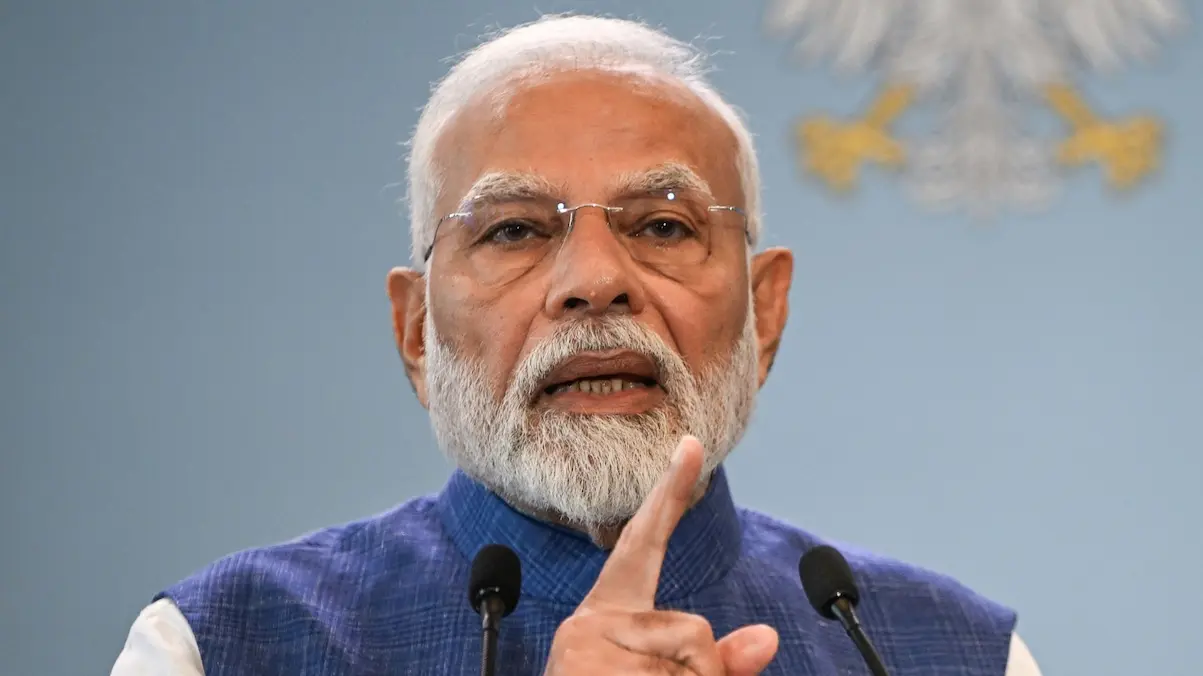
PM Modi rejects exemption in new bill to sack ministers jailed for serious crimes, affirming equal accountability
“No Special Privilege for Me” – India’s political landscape witnessed a rare moment of ethical clarity this week when Prime Minister Narendra Modi refused to accept special protection under a new bill that could remove ministers including the PM himself, if they are jailed for serious crimes. Union Minister Kiren Rijiju revealed this decision during a media interaction, calling it a bold and principled stand.
What Is the Ministers’ Dismissal Bill?
The government recently introduced three bills in Parliament aimed at strengthening accountability among top political leaders. These bills include:
- The Constitution (130th Amendment) Bill, 2025
- The Government of Union Territories (Amendment) Bill, 2025
- The Jammu and Kashmir Reorganisation (Amendment) Bill, 2025
The key proposal? If a Prime Minister, Chief Minister, or any other minister is arrested and remains in custody for 30 consecutive days on serious criminal charges (those carrying a minimum sentence of five years), they will automatically lose their position on the 31st day.
This move is meant to ensure that leaders accused of serious crimes cannot continue to hold office while under investigation or trial. It’s a step toward cleaner governance and public trust.
PM Modi Says “No Special Privilege for Me”
During cabinet discussions, some members suggested that the Prime Minister should be exempt from this rule. But PM Modi firmly rejected the idea.
According to Kiren Rijiju, PM Modi said:
“The PM is also a citizen. He should not have special protection.”
This statement reflects a strong commitment to equality before the law. Modi’s refusal to accept an exemption sends a message that no one regardless of rank or power should be above the law.
Rijiju added that most Chief Ministers are from the ruling party, and if any of them are found guilty, they too must step down. “Ethics should mean something,” he said.
Why This Matters for Indian Democracy
In a country where political immunity has often shielded powerful leaders from legal consequences, this bill marks a shift toward greater accountability.
Here’s why PM Modi’s decision is significant:
- Sets a Precedent: By refusing special treatment, Modi sets an example for other leaders to follow.
- Strengthens Rule of Law: It reinforces the idea that all citizens, including elected officials, are equal under the law.
- Builds Public Trust: Citizens are more likely to trust a government that holds its own leaders accountable.
However, the bill has also sparked controversy. Opposition parties have criticized it as politically motivated, claiming it could be used to target leaders from non-BJP states using central investigative agencies.
What Happens Next?
The bills have been introduced in Parliament and referred to a Joint Parliamentary Committee for further review. This means lawmakers from different parties will examine the proposals in detail before they are passed.
Despite protests and disruptions in both Lok Sabha and Rajya Sabha, the government managed to push the bills forward. Home Minister Amit Shah introduced them amid loud opposition, with some MPs tearing up copies of the draft and shouting slogans.
While the ruling party sees the bill as a step toward ethical governance, critics argue that it needs more debate and safeguards to prevent misuse.
Conclusion
PM Modi’s decision to reject personal exemption in the Ministers’ Dismissal Bill is a powerful gesture in favor of ethical leadership. Whether the bill becomes law or not, the message is clear: accountability must begin at the top.
As citizens, we must stay informed and engaged. Laws like these can shape the future of our democracy but only if they are implemented fairly and transparently.
Also read – Jailhouse Governance Ends? New Bills Aim to Restore Integrity in Indian Politics
Stay informed with the latest news and updates – only on Rapido Updates.